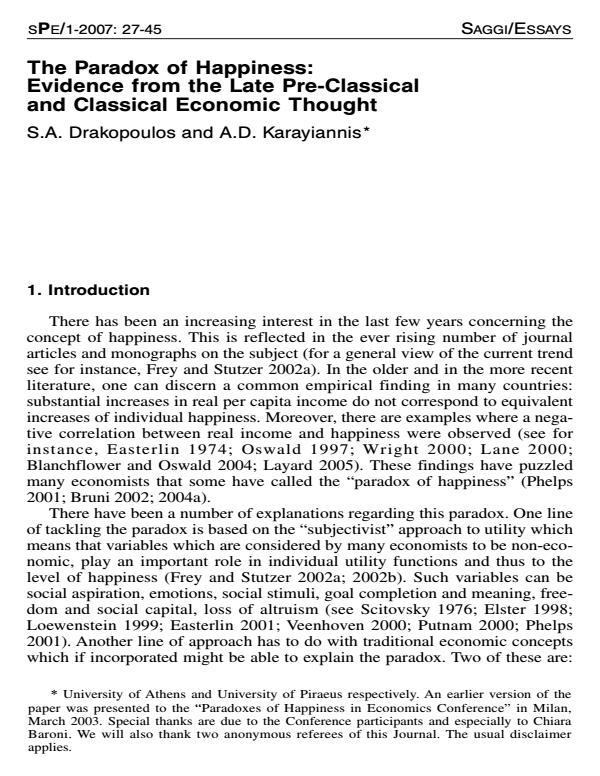The Paradox of Happiness: Evidence from the Late Pre-Classical and Classical Economic Thought
Journal title STORIA DEL PENSIERO ECONOMICO
Author/s Stavros A. Drakopoulos, Anastassios D. Karayiannis
Publishing Year 2007 Issue 2007/1
Language English Pages 19 P. 27-45 File size 145 KB
DOI
DOI is like a bar code for intellectual property: to have more infomation
click here
Below, you can see the article first page
If you want to buy this article in PDF format, you can do it, following the instructions to buy download credits

FrancoAngeli is member of Publishers International Linking Association, Inc (PILA), a not-for-profit association which run the CrossRef service enabling links to and from online scholarly content.
<em>The paradox of happiness: evidence from the late pre-classical and classical economic thought </em> (di Stavros A. Drakopoulos, Anastassios D. Karayiannis) - ABSTRACT: A number of studies have shown that considerable increases in real per capita income do not correspond to equivalent increases of reported individual happiness. This finding has been termed the paradox of happiness. The paper discusses this paradox by drawing from the history of economic thought. More specifically, it argues that the idea of basic and non-basic needs can be an alternative way of approaching this paradox. The basis of this idea can be found in pre-classical economic thought and also in the works of major classical economists. Thus, it is shown that pre-classical and classical views on hierarchical consumption, basic needs and their links with happiness and material consumption might provide an alternative explanation of the happiness paradox.
Stavros A. Drakopoulos, Anastassios D. Karayiannis, The Paradox of Happiness: Evidence from the Late Pre-Classical and Classical Economic Thought in "STORIA DEL PENSIERO ECONOMICO" 1/2007, pp 27-45, DOI: